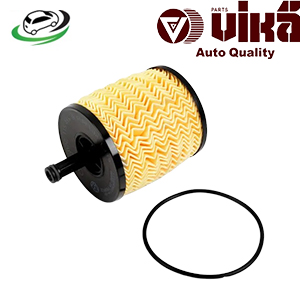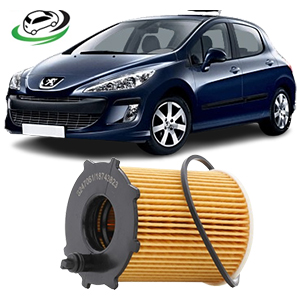-11%
Get Peugeot 308 Cabin Pollen Filter Assy Set 6479.92
A cabin pollen filter, also known as a cabin air filter, is a filtration component installed in the vehicle’s ventilation system. It filters the air that comes into the cabin through the heating, ventilation, and air conditioning (HVAC) system, trapping particles like dust, pollen, smoke, mold spores, and other airborne contaminants.
The cabin pollen filter is typically located behind the glove compartment, under the dashboard, or in the engine bay near the base of the windshield, depending on the vehicle make and model. Its job is to maintain good air quality inside the vehicle by filtering out harmful pollutants from outside air before it enters the cabin.
2. Functions of a Cabin Pollen Filter Assembly Set
The primary functions of a cabin pollen filter assembly set include:
2.1. Air Filtration
The main function of the cabin pollen filter is to filter the outside air that enters the vehicle’s HVAC system. It traps a variety of pollutants, such as dust, dirt, pollen, and other airborne particles. This prevents these harmful substances from entering the cabin and being inhaled by passengers.
2.2. Allergen Protection
One of the most important functions of the cabin pollen filter is to protect passengers from allergens such as pollen and mold spores. This is particularly beneficial for people who suffer from allergies or asthma. By filtering out these allergens, the cabin pollen filter helps create a more comfortable environment for all passengers.
2.3. Odor Reduction
In some cases, cabin filters also help reduce unpleasant odors that may come from outside the vehicle, such as exhaust fumes or industrial pollutants. Charcoal-activated cabin filters are particularly effective at absorbing odors and preventing them from entering the cabin.
2.4. Protecting the HVAC System
The cabin pollen filter also helps protect the HVAC system itself. Without proper filtration, contaminants can build up within the HVAC system, leading to reduced performance, unpleasant odors, and potentially costly repairs. A clean cabin filter ensures that the system runs efficiently and reduces the wear and tear on components like the blower motor.
3. Benefits of a Cabin Pollen Filter
A high-quality cabin pollen filter assembly set offers several key benefits for both the vehicle and its occupants:
3.1. Improved Air Quality
The cabin pollen filter significantly improves the quality of air that passengers breathe inside the vehicle. By trapping contaminants, dust, and allergens, it ensures that the air circulating within the vehicle is cleaner and healthier. This is especially important in urban areas with high levels of pollution or during allergy seasons when pollen counts are high.
3.2. Enhanced Passenger Comfort
By keeping pollutants out, the cabin filter enhances the overall comfort of the passengers. It ensures that the air feels fresher and reduces the likelihood of passengers experiencing allergic reactions or respiratory issues. It also reduces the accumulation of dust inside the cabin, making it easier to keep the interior clean.
3.3. Reduced Allergy and Asthma Symptoms
For people with asthma, allergies, or other respiratory conditions, the cabin pollen filter provides significant health benefits. It prevents pollen, mold spores, and other allergens from entering the cabin, helping to reduce the frequency and severity of symptoms.
3.4. Protection Against Harmful Particles
In addition to allergens, cabin filters help block harmful particles such as exhaust fumes, industrial pollutants, and chemicals that could otherwise enter the cabin and harm passengers’ health over time. These filters are particularly important for vehicles driven in areas with high traffic or industrial activity.
3.5. Improved HVAC Performance
By filtering out dust and debris before it reaches the HVAC system, the cabin pollen filter helps protect the blower motor, evaporator, and other components from damage. This can extend the life of the HVAC system, improve its performance, and reduce the likelihood of costly repairs.
4. Types of Cabin Pollen Filters
There are several types of cabin pollen filters available, each designed to provide varying levels of filtration and protection. Here are the main types:
4.1. Particulate Cabin Filters
The most common type of cabin filter, particulate filters are designed to trap solid particles such as dust, dirt, and pollen. They are typically made of pleated paper or synthetic fibers and provide basic filtration for everyday driving conditions.
4.2. Charcoal-Activated Cabin Filters
Charcoal-activated cabin filters offer an additional layer of filtration by using activated charcoal to absorb odors, gases, and volatile organic compounds (VOCs) that may enter the vehicle. These filters are particularly effective at removing odors from exhaust fumes, smoke, and industrial pollution, making them ideal for urban areas or environments with poor air quality.
4.3. HEPA Cabin Filters
High-efficiency particulate air (HEPA) filters are the most advanced type of cabin filter, capable of trapping particles as small as 0.3 microns. HEPA filters provide superior filtration and are highly effective at removing allergens, bacteria, and even some viruses from the air. They are often recommended for people with severe allergies or respiratory conditions.
5. Common Issues with Cabin Pollen Filters
While cabin pollen filters are generally reliable, several issues can arise if they are not maintained properly. Common problems include:
5.1. Clogging
Over time, cabin pollen filters can become clogged with dirt, dust, and other debris. A clogged filter restricts airflow into the cabin, reducing the efficiency of the HVAC system and leading to poor air circulation. This can also increase strain on the blower motor, leading to higher energy consumption and potential damage.
5.2. Unpleasant Odors
A cabin filter that is not replaced regularly can develop a musty smell due to the buildup of mold, mildew, and other contaminants. This can result in unpleasant odors inside the vehicle when the HVAC system is turned on. In some cases, mold growth on the filter can lead to respiratory issues for passengers.
5.3. Reduced HVAC Efficiency
As the cabin filter becomes clogged, the HVAC system has to work harder to push air through the filter. This can lead to reduced cooling and heating performance, increased wear on the blower motor, and higher energy consumption.
6. Maintenance Tips for Cabin Pollen Filters
Regular maintenance of the cabin pollen filter is essential for maintaining good air quality inside the vehicle and ensuring the efficient operation of the HVAC system. Here are some key maintenance tips:
6.1. Replace the Filter Regularly
Most manufacturers recommend replacing the cabin pollen filter every 12,000 to 15,000 miles, or at least once a year. However, this interval may vary depending on driving conditions. For example, if you frequently drive in dusty areas or high-pollen regions, more frequent replacement may be necessary.
6.2. Check for Clogs
If you notice reduced airflow from the vents or a musty odor inside the cabin, it may be time to check the cabin pollen filter. Clogged filters should be replaced immediately to restore proper ventilation and prevent strain on the HVAC system.
6.3. Inspect the HVAC System
When replacing the cabin pollen filter, take the opportunity to inspect the HVAC system for any signs of damage, such as debris buildup, mold growth, or worn components. Keeping the system clean and well-maintained can help prevent future issues.
6.4. Use High-Quality Filters
Choose a cabin pollen filter that meets or exceeds the vehicle manufacturer’s specifications. High-quality filters are more effective at trapping contaminants and providing clean air. For people with allergies or sensitivities, upgrading to a HEPA or charcoal-activated filter can provide added protection.
7. Conclusion
The cabin pollen filter assembly set plays a vital role in maintaining clean, healthy air inside the vehicle. By filtering out pollutants, allergens, and odors, it ensures that passengers enjoy a comfortable and safe driving experience. Regular maintenance and timely replacement of the filter are essential to keeping the HVAC system running efficiently and protecting the health of passengers.
Understanding the functions, benefits, and types of cabin pollen filters allows vehicle owners to make informed decisions about the care and maintenance of their filtration system. Whether driving in urban environments with high levels of pollution or rural areas with seasonal allergens, a well-maintained cabin pollen filter helps ensure that the air inside the vehicle remains clean and fresh for all passengers.
Follow us on Facebook for more parts.






Reviews
Clear filtersThere are no reviews yet.